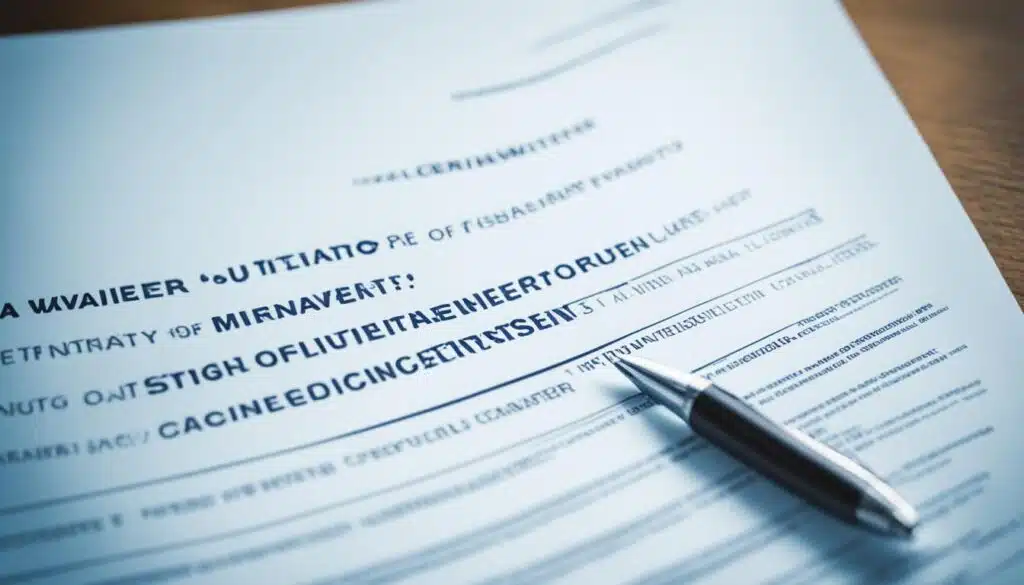Opposing Counsel Attorneys have a fiduciary duty to avoid representing clients whose interests conflict with those of another client. Conflicts of interest can occur when representing two clients with opposing interests, when there are conflicted responsibilities to a current or former client or third party, or when the attorney previously represented an opposing party related to the same case. It is crucial for attorneys to identify potential conflicts through conflict checks before engaging in extensive discussions with a potential client. Practice management applications with comprehensive conflict-checking systems can help streamline this process and ensure the absence of conflicts at all levels.
- Lawyers must navigate conflicts of interest when representing clients with opposing interests.
- Conflict checks are crucial in identifying potential conflicts before engaging with a client.
- Practice management applications with conflict-checking systems can streamline the process.
- Attorneys have a fiduciary duty to uphold ethical standards and avoid conflicts of interest.
- Identifying and managing conflicts of interest is essential for maintaining the attorney-client relationship.
The Importance of Conflict Checks in Maintaining Ethical Standards
Conducting conflict checks is an essential practice for law firms to maintain ethical standards and ensure the integrity of the attorney-client relationship. Conflict checks involve thoroughly examining potential clients and comparing them against a list of current and former clients to identify any conflicts of interest. By diligently conducting these checks before engaging in extensive discussions with a potential client, attorneys can avoid situations where they inadvertently represent clients with conflicting interests.
Inadvertently representing clients with conflicting interests can have serious consequences. It can lead to disqualification from representation or even result in malpractice claims. To mitigate these risks, it is crucial to utilize practice management applications that offer robust conflict-checking systems. These applications streamline and enhance the accuracy of the conflict-checking process, enabling attorneys to identify and address conflicts of interest effectively.
Through conflict checks, attorneys can uphold ethical standards by ensuring that their representation remains free from conflicts of interest. This practice demonstrates a commitment to the well-being and best interests of their clients, as well as the overall integrity of the attorney-client relationship. Conflict checks help attorneys maintain the trust and confidence of their clients, fostering a strong and ethical practice.
Essentially, conflict checks provide attorneys with the necessary information to make informed decisions and navigate potential ethical pitfalls. By proactively identifying conflicts of interest, attorneys can take appropriate measures to address them, preserving the trust and loyalty their clients place in them.
The significance of conflict checks cannot be overstated. They are an integral part of maintaining ethical standards and ensuring that attorneys fulfill their fiduciary duty to their clients. Conducting thorough conflict checks is a proactive approach that safeguards against potential conflicts of interest, allowing attorneys to provide competent and diligent representation.
The Challenges of Personal Relationships with Opposing Counsel
Personal relationships between attorneys and opposing counsel can give rise to conflicts of interest, which can significantly impact the legal profession’s ethical standards. According to the ABA Model Rules of Professional Conduct, lawyers are prohibited from representing a client if there is a substantial risk that their personal interest will materially limit their representation. This prohibition extends to personal relationships, including those formed through blood or marriage ties.
One prime example of personal relationships that can pose conflicts of interest are intimate relationships between lawyers and opposing counsel. These relationships can compromise an attorney’s ability to provide unbiased representation and jeopardize the attorney-client relationship. Likewise, close friendships with opposing counsel may create conflicts that impede an attorney’s ability to uphold their fiduciary duty to act in their client’s best interests.
Given the potential risks, attorneys in intimate relationships or close friendships with opposing counsel must take proactive measures to ensure compliance with ethical standards. The ABA Model Rules of Professional Conduct require attorneys to disclose these relationships and obtain informed consent from their clients in writing before proceeding with representation. This process provides an opportunity for the client to assess whether the attorney’s personal relationship may compromise their ability to provide effective legal representation.
Failure to disclose personal relationships or obtain informed consent can result in serious ethical violations and potential legal malpractice claims. Attorneys must be diligent in evaluating their personal relationships and their potential impact on conflicts of interest. By disclosing these relationships and obtaining informed consent, attorneys can mitigate the risks associated with personal relationships and maintain the integrity of the attorney-client relationship.
“Attorneys must disclose personal relationships with opposing counsel and obtain informed consent from clients in writing to avoid conflicts of interest.”
To illustrate the importance of managing conflicts of interest arising from personal relationships, we can refer to the following table:
| Personal Relationship | Ethical Requirement |
|---|---|
| Intimate relationship | Disclosure and informed consent from client |
| Close friendship | Disclosure and informed consent from client |
When Personal Relationships Create Conflicts of Interest
Personal relationships, aside from blood or marriage, can create conflicts of interest for attorneys. Intimate relationships or close friendships with opposing counsel have the potential to limit an attorney’s ability to provide competent and diligent representation to their clients. The duty of loyalty to clients may be compromised when personal relationships come into play.
Attorneys who find themselves in these situations have a responsibility to disclose the personal relationship to their clients. Furthermore, they must obtain informed consent, confirmed in writing, before continuing to represent the client. The level of disclosure and consent required depends on the nature and closeness of the personal relationship in question.
When evaluating the impact of personal relationships on their professional responsibilities, attorneys must consider the potential conflicts of interest that may arise. They should be diligent in assessing whether their personal relationship could compromise their ability to provide unbiased advice and zealous advocacy for their clients.
“A personal relationship can significantly impact an attorney’s ability to fulfill their fiduciary duty to their clients.”
By ensuring the disclosure of personal relationships and obtaining informed consent, attorneys can aim to prevent ethical violations and legal consequences. Open dialogue and transparency with clients about personal relationships are essential in maintaining the integrity of the attorney-client relationship.
Example: Personal Relationship Disclosure
Attorney Sarah is handling a high-stakes litigation case against opposing counsel, Attorney Mark. Unknown to Sarah at the beginning of the case, she and Mark are close friends from law school. As they progress through the case, Sarah realizes the potential conflict of interest created by their personal relationship. In compliance with ethical standards, Sarah promptly discloses her relationship with Mark to her client and obtained informed consent, confirmed in writing, to continue representing the client. This upfront disclosure and consent help mitigate any concerns about bias or compromised representation.
Example: Informed Consent for Intimate Relationships
Attorney Alex is involved in a romantic relationship with opposing counsel, Attorney Jamie, in a family law case. Recognizing the potential conflicts of interest, Alex informs their client and obtains informed consent verified in writing before continuing to represent them. This step ensures transparency and allows the client to make an informed decision about whether they are comfortable with Alex’s representation.
Overall, managing conflicts of interest arising from personal relationships requires attorneys to be mindful of their duty of loyalty, diligently assess their ability to provide unbiased representation, and have open communication with their clients. By navigating these challenges with sensitivity and transparency, attorneys can maintain ethical standards and preserve the trust and confidence of their clients.
Managing Conflicts of Interest in Business Transactions and Professional Relationships
Attorneys play a crucial role in managing conflicts of interest that arise from business transactions and professional relationships. This ensures ethical standards are upheld and clients’ interests are prioritized. According to Model Rule 1.8 of the ABA Model Rules of Professional Conduct, attorneys are prohibited from entering into business transactions that are adverse to their clients’ interests without appropriate disclosures and consent.
When engaging in business transactions on behalf of clients, attorneys must ensure transparency and fairness. It is essential to document all transactions in writing and advise clients of their right to seek independent counsel. By adhering to these best practices, attorneys can mitigate conflicts of interest and maintain their clients’ trust.
Similar considerations apply to professional relationships, particularly when attorneys find themselves representing opposing parties in the same litigation or proceeding. In these situations, attorneys must prioritize the interests of their clients over any personal interest they may have. By doing so, they can ensure ethical standards are upheld and maintain the integrity of the legal profession.
To illustrate the importance of managing conflicts of interest in business transactions and professional relationships, consider the following examples:
- An attorney who represents a company in a business transaction with a supplier must ensure that the transaction is fair and reasonable for the client. Any personal relationships or financial interests that could compromise the attorney’s loyalty to the client must be disclosed.
- When attorneys represent opposing parties in a legal dispute, they must advocate for their clients’ interests while maintaining professionalism and integrity. Conflicts of interest can arise when personal relationships or friendships exist between opposing counsel. in this case, attorneys must disclose these relationships to their clients and obtain informed consent to proceed with representation.
| Example: | Impact of Conflicts of Interest in Business Transactions and Professional Relationships |
|---|---|
| 1. | An attorney represents two companies that are negotiating a merger. Unbeknownst to one of the clients, the attorney has a significant financial interest in the success of the transaction. Failure to disclose this conflict can lead to legal consequences, including disqualification and potential malpractice claims. |
| 2. | An attorney is representing a landlord in a lease negotiation with a tenant. However, the attorney is also a part-owner of the property being leased. It is crucial for the attorney to disclose this conflict of interest to the client, allowing them to make an informed decision. |
Effectively managing conflicts of interest in business transactions and professional relationships requires attorneys to prioritize their clients’ interests and maintain the highest ethical standards. By doing so, attorneys can ensure the integrity of the attorney-client relationship and safeguard their professional reputation.
The Role of Waivers in Managing Conflicts of Interest
Waivers play a significant role in managing conflicts of interest in legal representation. When conflicts arise, attorneys can seek informed consent from their clients to proceed with the representation, known as obtaining a waiver. This process involves full disclosure of the conflict and its potential consequences, allowing the client to make an informed decision.
During the waiver process, attorneys provide clients with detailed information about the risks and benefits associated with the conflict. By ensuring clients understand the implications, they can make an informed choice regarding the representation.
Although not required in all jurisdictions, obtaining waivers in writing is recommended. Written waivers serve as documented evidence of the client’s informed consent, reducing the likelihood of disputes arising in the future. It provides clarity and protection for both the attorney and the client.
By utilizing waivers, attorneys can mitigate conflicts of interest and still provide representation to clients facing complex legal situations. The waiver process safeguards the attorney-client relationship by promoting transparency and fostering trust.
Implementing waivers as a best practice ensures that attorneys adhere to ethical standards and emphasizes the importance of informed consent in managing conflicts of interest. Through this process, attorneys demonstrate their commitment to prioritizing their clients’ best interests in every aspect of legal representation.
Ensuring Compliance with Ethical Standards in Personal Relationships with Opposing Counsel
Attorneys must take proactive measures to ensure compliance with ethical standards in personal relationships with opposing counsel. Maintaining transparency, disclosing personal relationships, obtaining informed consent in writing, and following the guidelines set by the ABA Model Rules of Professional Conduct are crucial steps to mitigate the risk of ethical violations and protect the attorney-client relationship.
Personal relationships with opposing counsel can create potential conflicts of interest. To address this, attorneys should prioritize their duty of loyalty to their clients and be aware of the risks involved. This includes recognizing the limitations that personal relationships can impose on representing clients with conflicting interests and taking appropriate action to manage these conflicts.
The ABA Model Rules of Professional Conduct provide guidance on managing personal relationships with opposing counsel. Rule 1.7 states that an attorney shall not represent a client if there is a significant risk that the attorney’s personal interest will materially limit the representation. This rule applies to personal relationships, such as close friendships or being closely related by blood or marriage.
“It is essential for attorneys to uphold ethical standards and prioritize their clients’ interests above personal relationships with opposing counsel. By disclosing personal relationships to clients and obtaining informed consent in writing, attorneys can navigate potential conflicts and maintain the integrity of the attorney-client relationship.”
Furthermore, attorneys must adhere to the ABA Model Rules of Professional Conduct, which provide specific guidelines on conflicts of interest, informed consent, and maintaining the attorney-client relationship. By following these rules, attorneys can ensure compliance with ethical standards and uphold their professional obligations.
Key Considerations for Ensuring Compliance:
- Disclose personal relationships to clients: Attorneys should inform their clients of any personal relationships they have with opposing counsel, including close friendships or familial ties.
- Obtain informed consent in writing: Attorneys must obtain written consent from their clients, acknowledging the personal relationship and any potential conflicts of interest that may arise.
- Adhere to the ABA Model Rules of Professional Conduct: It is essential for attorneys to familiarize themselves with the rules and guidelines outlined by the ABA to ensure compliance with ethical standards.
- Mitigate conflicts of interest: Attorneys should take necessary steps to minimize or eliminate conflicts of interest that may arise from personal relationships, such as withdrawing from representation or seeking alternative solutions.
By following these practices and prioritizing ethical standards, attorneys can navigate personal relationships with opposing counsel while maintaining their professional integrity. This approach not only protects the attorney-client relationship but also fosters trust and confidence among clients.
The Implications of Conflicts of Interest on Attorney-Client Relationships
Conflicts of interest can have significant implications for the attorney-client relationship. As fiduciaries, attorneys have a duty to act in their clients’ best interests and avoid any conflicts that could compromise their ability to provide competent and diligent representation. Failure to identify and address conflicts of interest can lead to breaches of fiduciary duty, disqualification from representation, and even legal malpractice claims.
Managing conflicts of interest is crucial to protect the integrity of the attorney-client relationship. Attorneys must prioritize their clients’ interests above all else and diligently navigate any potential conflicts. By doing so, they not only fulfill their professional obligations but also ensure their clients receive the utmost care and commitment.
In cases where conflicts of interest are present, attorneys must carefully evaluate the situation and consider whether they can still provide effective representation without compromising their duty to their clients. This may involve seeking informed consent from all affected parties or declining representation if the conflict cannot be adequately addressed.
It is essential for attorneys to maintain open and transparent communication with their clients regarding potential conflicts of interest. Clients should be informed of any conflicts that arise and the steps taken by the attorney to mitigate the impact of these conflicts. By fostering trust and ensuring clear communication, attorneys can preserve the attorney-client relationship even in the face of conflicts of interest.
“The duty of loyalty to a client prohibits an attorney from representing a client whose interests conflict with the attorney’s personal interests or with the interests of another client.”
| Implications of Conflicts of Interest | Actions to Protect Attorney-Client Relationship |
|---|---|
| Potential breach of fiduciary duty | Open and transparent communication |
| Risk of disqualification from representation | Proactive conflict identification and management |
| Potential legal malpractice claims | Evaluating conflicts and seeking informed consent |
| Loss of trust and credibility | Preserving client interests above personal interests |
As legal professionals, attorneys must consistently uphold ethical standards, diligently manage conflicts of interest, and protect the attorney-client relationship. By doing so, they not only fulfill their professional obligations but also maintain the trust of their clients and the integrity of the legal profession.
Best Practices for Conducting Effective Conflict Checks
Conducting effective conflict checks is crucial for attorneys to uphold ethical standards and mitigate the risk of conflicts of interest. By adopting best practices, law firms can streamline the process and ensure accurate identification of potential conflicts. Here are some key strategies to consider:
- Utilize Practice Management Applications: Law firms should leverage practice management applications with comprehensive conflict-checking systems. These applications integrate with other office systems, including time tracking, billing, and case management, to facilitate a seamless conflict review process.
- Emphasize Efficiency: Attorneys should prioritize efficiency when conducting conflict checks. This involves utilizing technology to automate the identification of conflicts and streamline the review process. By leveraging efficient tools, attorneys can save valuable time and resources while ensuring thoroughness in assessing conflicts of interest.
- Ensure Thoroughness: Thoroughness is key in conducting conflict checks. Attorneys should diligently review client databases, previous cases, and any relevant relationships to identify potential conflicts. It is essential to leave no stone unturned and to assess conflicts from various angles to minimize the risk of oversight.
- Manage Risk: Risk management is an integral part of effective conflict checks. Attorneys should establish clear protocols and guidelines for conflict identification and resolution. These protocols should be regularly reviewed, updated, and communicated to all members of the firm, ensuring consistent adherence to ethical standards.
By implementing these best practices, attorneys can conduct conflict checks more efficiently, mitigate the risk of conflicts of interest, and uphold the ethical standards of the legal profession.
See the table below for a comparison of different conflict-checking features offered by practice management applications:
| Practice Management Application | Comprehensive Conflict-Checking Features | Integration with Other Office Systems | User-Friendly Interface | Advanced Search Capabilities |
|---|---|---|---|---|
| Application X | ✓ | ✓ | ✓ | ✓ |
| Application Y | ✓ | ✓ | ✓ | ✓ |
| Application Z | ✓ | ✓ | ✓ | ✓ |
These practice management applications offer robust conflict-checking features, seamless integration with other office systems, user-friendly interfaces, and advanced search capabilities.
By following best practices, leveraging technology, and utilizing user-friendly practice management applications, attorneys can conduct effective conflict checks, uphold ethical standards, and protect the interests of their clients.
The Role of Technology in Conflict Checking and Compliance
Technology plays a vital role in conflict checking and compliance with ethical standards. Modern practice management applications equipped with advanced search capabilities can expedite the conflict review process and enhance accuracy by analyzing vast client databases and lists of vendors and other parties more efficiently than manual methods. By utilizing technology, law firms can decrease the risk of human error, save time, and improve the overall effectiveness of conflict checking procedures. Attorneys should embrace technology as a valuable tool in maintaining compliance with ethical standards and ensuring the absence of conflicts at all levels.
To illustrate the impact of technology, let’s take a closer look at how advanced practice management applications streamline conflict checking:
- Automated Conflict Search: Practice management software can conduct automated conflict searches against client records and internal databases, saving significant time compared to manual searches.
- Comprehensive Database Analysis: These applications can analyze extensive client databases and cross-reference them with vendor lists and other relevant parties, providing a more comprehensive conflict check.
- Real-Time Conflict Identification: Technology enables real-time conflict identification, allowing attorneys to quickly identify and address potential conflicts before proceeding with representation.
- Streamlined Conflict Resolution: Practice management software can streamline the conflict resolution process by providing clear steps and guidelines to manage conflicts in compliance with ethical standards.
In addition to conflict checking, technology also plays a crucial role in ensuring ongoing compliance with ethical standards. Practice management applications can assist in:
- Monitoring conflicts of interest on an ongoing basis
- Providing reminders for conflict checks at key stages of representation
- Tracking engagements and relationships to identify potential conflicts before they arise “i e.g client’s “no fee
By embracing technology, law firms can effectively manage conflicts of interest and ensure compliance with ethical standards. The adoption of advanced practice management applications enhances efficiency, accuracy, and data analysis, enabling attorneys to focus on providing excellent legal services while upholding professional ethics.
Also Read : What Are The Essential Acts Every Law Student Should Be Familiar With?
Conclusion
Conflicts of interest pose significant challenges for attorneys in maintaining ethical standards and upholding the integrity of the attorney-client relationship. By diligently managing conflicts of interest with opposing counsel, attorneys can ensure competent and diligent representation for their clients.
Thorough conflict checks, conducted using modern practice management applications, are crucial in identifying and avoiding potential conflicts. These applications streamline the conflict review process and enhance compliance with ethical standards. Attorneys can leverage technology to expedite conflict checks, minimize human error, and save time.
Additionally, it is essential for attorneys to disclose personal relationships with opposing counsel and obtain informed consent from their clients when necessary. By prioritizing the best interests of their clients and adhering to professional ethics, attorneys can effectively navigate conflicts of interest and maintain the principles of the legal profession.
Ultimately, by integrating comprehensive conflict-checking systems, embracing technology, and abiding by ethical standards, attorneys can successfully manage conflicts of interest and preserve the trust and confidence of their clients.
FAQs
Q: What are the ethical considerations for lawyers when they engage with opposing counsel?
A: Lawyers must manage conflicts of interest with opposing counsel in a manner that upholds the duty of loyalty to their clients and maintains the integrity of the legal profession.
Q: How do lawyers limit conflicts of interest when dealing with opposing counsel?
A: Lawyers can limit conflicts of interest by following the Model Rules of Professional Conduct, which provide guidelines for maintaining ethical behavior and avoiding situations that could compromise the client-lawyer relationship.
Q: What are the specific guidelines set forth in the model rules to manage conflicts of interest with opposing counsel?
A: The model rules provide specific guidelines for lawyers to follow when engaging with opposing counsel, including rules related to confidentiality, diligence, and the duty to communicate with clients.
Q: How does the practice of law require lawyers to navigate conflicts of interest with opposing counsel?
A: The practice of law often requires lawyers to encounter situations where they must manage conflicts of interest with opposing counsel, whether it be during negotiations, motions, or any other aspect of legal proceedings.
Q: What should lawyers do if they encounter difficult opposing counsel?
A: When lawyers encounter difficult opposing counsel, they should seek to resolve conflicts through professional courtesy and adherence to ethical guidelines, while diligently representing the interests of their clients.
Q: How should lawyers handle communication, such as email or phone calls, with opposing counsel?
A: Lawyers should handle communication with opposing counsel with professionalism and in a manner that abides by the rules of professional conduct, ensuring that confidential information is protected and the client’s interests are safeguarded.
Q: Are there any tips from the bar association on managing conflicts of interest with opposing counsel?
A: The bar association may provide tips and guidance on how lawyers can effectively manage conflicts of interest with opposing counsel, promoting ethical conduct and professionalism in legal practice.
Q: What should a lawyer do if they believe opposing counsel is using delaying tactics?
A: If a lawyer believes that opposing counsel is using delaying tactics, they should address the issue through appropriate legal channels, such as motion practice or seeking intervention from the tribunal, in accordance with the rules of professional conduct.
Q: Can another lawyer within the same firm represent a client if there is a conflict of interest with opposing counsel?
A: If there is a conflict of interest with opposing counsel, another lawyer within the same firm may be able to represent the client, provided that the conflict is appropriately addressed and does not violate the rules of professional conduct.
Q: What are the key considerations for lawyers when engaging in mediation with opposing counsel?
A: When engaging in mediation with opposing counsel, lawyers must navigate the process with integrity and professionalism, striving to reach a settlement while upholding the principles of the legal profession and maintaining the client’s best interests.
Source Links
- https://www.hinshawlaw.com/newsroom-newsletters-lln-identifying-and-resolving-conflicts-of-interest.html
- https://caretlegal.com/blog/conflict-check-basics-what-every-legal-professional-should-know/
- https://www.abajournal.com/web/article/can-personal-relationships-cause-conflict-new-ethics-opinion-says-lawyers-must-assess-duties-to-clients










